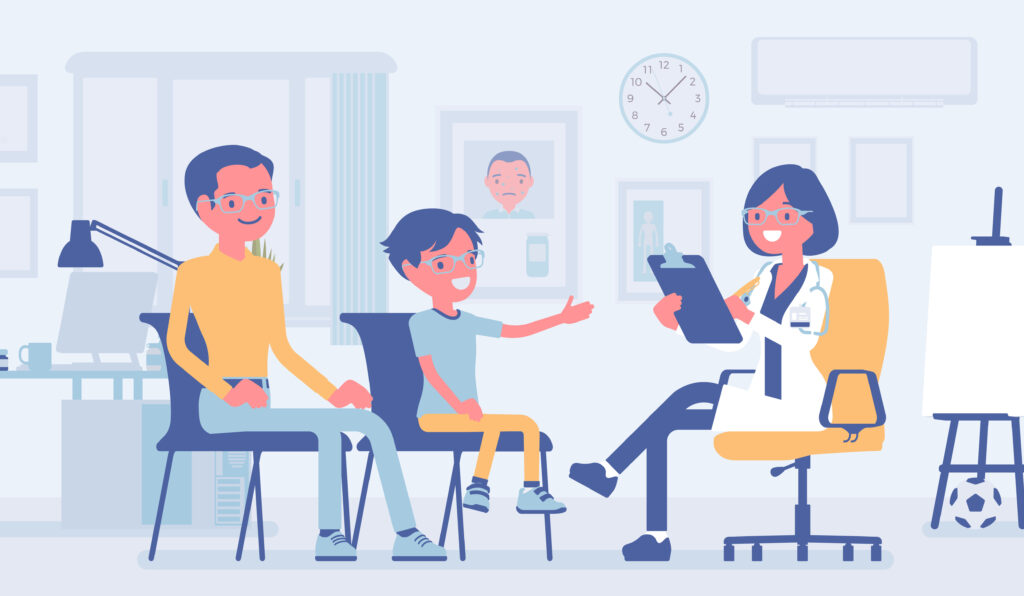Systemic Family Psychotherapy: Does your family need help?
When one family member struggles with stress, mental health, addiction, or problematic emotional reactions, the whole system (family) has an impact and is impacted.
Systemic family therapy aims to help family members to understand and to manage emotional and relational challenges, improve dynamics within a family, address specific problems and more…
During the last 30 years, research has confirmed both positive impact and cost-effectiveness of different family-based interventions in preventing and treating mental health and relational challenges within a family.

What is Systemic Family Therapy?
Systemic family therapy, or family therapy, is a form of psychotherapy that can help family members strengthen connections and resolve conflicts among them.
Systemic family psychotherapy is based on a systemic approach. This means that systemic therapists focus on a presenting issue in the context of family relations and dynamics. It aims to heal the problems within the family constellation.
For example, if one family member struggles with depression, their mental health is seen as part of the overall family system impacted by and affecting other family members, so it cannot be approached as an isolated problem.
How does Systemic Therapy Work?
Families who struggle with emotional, mental, or relational problems that bring accumulated stress could benefit from family psychotherapy.
You can expect your systemic family therapy session to last on average between 50 and 90 minutes.
Your family therapist will not take sides or blame; they aim to build on the existing strengths of the families and individuals they work with, to improve mutual understanding.
Your family therapist may offer a combination of individual and family appointments, depending on your needs and problems.

How Can Your Family Benefit from Systemic Therapy?
Systemic psychotherapy can help you express and work through distressing thoughts and emotions in a safe environment. In addition, it can help you understand one another, appreciate each other’s needs and viewpoints, and develop communication and practical ways to improve family relationships and wellbeing in general.
Sessions with a family therapist could enable you to:
- Understand and manage stress
- Set healthy boundaries
- Improve communication
- Use your resources to support one another
- Increase empathy
- Strengthen connections among family members
- Develop stress and anger management skills
Family counselling is short-term psychotherapy with six to eight sessions, typically over a month. Nevertheless, if a family struggles with more complex difficulties, family therapy may last longer.
Why and When You Should Consider Systematic Family Therapy?
Systemic therapy has proven to be successful in treating various interpersonal issues and difficulties within the family.
Family therapy can be an independent mental health treatment option. However, you can seek family counselling along with other mental health interventions.
You should consider family therapy if you or another family member experiences challenges such as:
- Child and adolescent mental health concerns
- Adult mental health issues
- Attachment issues
- School-related problems
- Relationship distress
- Challenges of childhood and adolescence
- Alcohol and substance use
- Addiction
- Depression
- Eating disorders
- Parenting issues
- Separation and divorce
- Trauma
- Death in a family and grief
Also, you may seek systemic family therapy along with other types of psychotherapy. For example, family therapy can be combined with one family member’s addiction rehabilitation to help the whole family cope with addiction.

Summary
Systemic family psychotherapy is an evidence-based type of mental health counselling that focuses on relationships within a family. It has proven its effectiveness in the prevention and treatment of various mental health and relational issues.
However, systemic counselling can also be helpful in any family situation that involves stress, communication issues, conflicts, or grief. It can help family members understand each other better, change dysfunctional communication patterns, and cope with various mental health and relational issues within a family.
How Counselling can Help – Leone Centre – Supporting People since 2009
With professionals across each of our services, including Individual Therapy, Couples Counselling and Corporate Services, each client will be carefully assigned the right counsellor and coach according to their needs.
You are assured a confidential and prompt response.
Book and schedule an initial appointment
Call 020 3930 1007 Leone Centre
- About the Author
- Latest Posts
Co-founder and director of Leone Centre, 20+ years of experience supporting people, and offering valuable knowledge through Couples Counselling and Individual Counselling. Before becoming a therapist, I worked in the financial sector.

Get Started Today
with Leone Centre

BOOK NOW

Call us
020 3930 1007

View our therapists
Find your match


